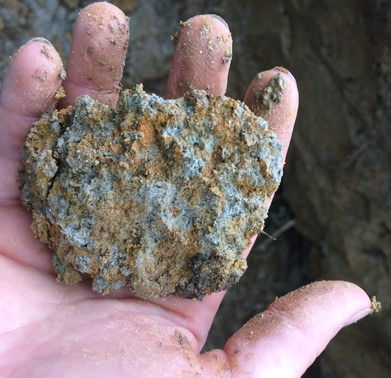By Susan V. Fisk

There are hundreds of thousands—if not millions—of organisms in just a handful of soil. The Soil Science Society of America (SSSA) June 1 Soils Matter blog explains the important role of soil microbes in freeing up soil nutrients for plants.
“Soil is rich with biological diversity and complexity that is not immediately apparent to the unaided eye,” writes blogger Caitlin Hodges, Pennsylvania State University. Soil microorganisms make nutrients available for plants in three ways:
“Recyclers” break down plant and animal matter. “They turn the world’s refuse into the building blocks of life,” Hodges says. “The maintenance of plant-life would be nearly impossible without these hard-working organisms.”
“Miners” work on extracting nutrients from rocks and minerals. They excrete a substance with “a special pH and other key characteristics specially formulated to bind and extract nutrients like phosphorus, calcium, and potassium.” Plants need these minerals for healthy growth.
“Refiners” are rhizobia bacteria. “These ‘nitrogen-fixing’ bacteria take inert nitrogen gas in the atmosphere (N2 gas) and convert it to the plant-available ammonia and other nitrogen-rich organic compounds,” Hodges says.
How can you get more of these microorganisms? Using crop residue, compost, and mulch, and planting legume crops, help create a thriving environment for these vital helpers.
Click here to see more...